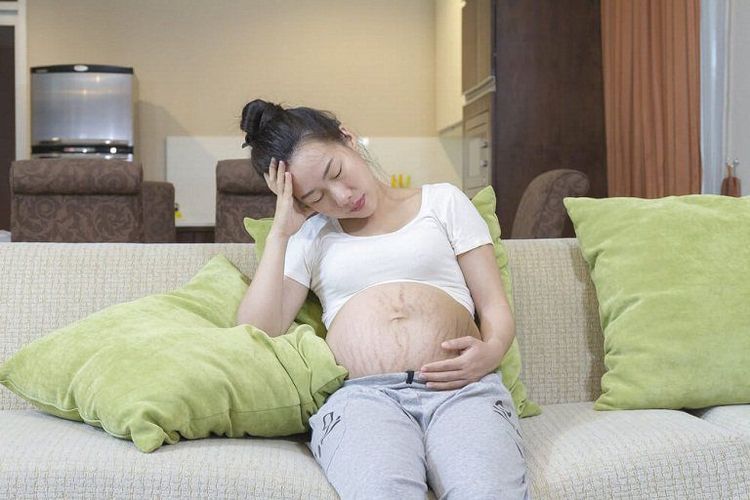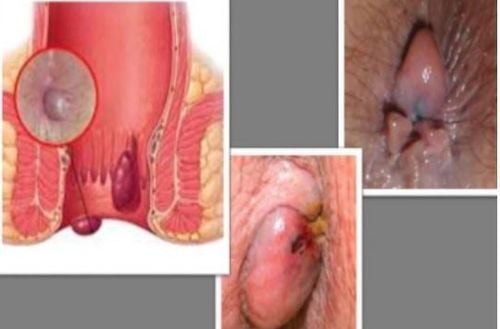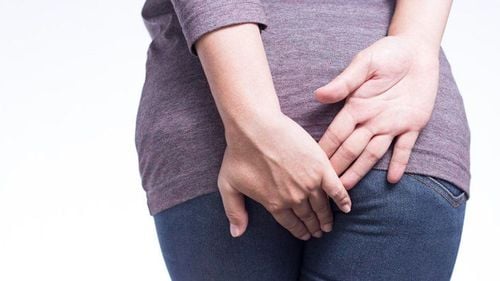This article is professionally reviewed by MSc. Dr. Le Nhat Nguyen – Obstetrician, Department of Obstetrics and Gynecology, Vinmec Da Nang International Hospital
Hemorrhoids during pregnancy are relatively common, often mild, and typically resolve on their own after delivery. However, in some cases, women may experience severe hemorrhoids, raising the question of whether surgical intervention is necessary or if treatment can be delayed until after childbirth. At this point, the timing of hemorrhoid surgery requires careful consideration.
1. Risks and complications of hemorrhoids during pregnancy
Women who had hemorrhoids in their first pregnancy are more likely to develop severe hemorrhoids in subsequent pregnancies. This is particularly true for those delivering vaginally, as the strain during labor can exacerbate the condition due to incomplete muscle recovery.
The size and location of the hemorrhoids vary—from small, pea-sized lumps to larger, grape-sized swellings, and they can be either internal or external. Hemorrhoids can cause itching, pain, and discomfort. In more severe cases, rectal bleeding during or after bowel movements may occur, posing additional health risks for the mother.
2. When is surgery necessary in pregnant women with severe hemorrhoid?
Specialty doctors generally advise against surgical intervention for hemorrhoids during pregnancy, favoring conservative treatments such as medications or suppositories. If the condition worsens and surgical intervention becomes necessary, it should be postponed until after delivery.
Such severe cases include excessive swelling that causes significant pain and inability to have normal bowel movements. In cases of complications such as thrombosis or infection, surgical intervention must be initiated immediately.
Even in such cases, surgery is usually delayed until at least 6 weeks postpartum. This allows the muscles and tissues around the anus to return to their normal state, reducing the risks associated with surgical intervention. Doctors will assess each case individually to determine the most appropriate treatment plan.

3. Conservative treatments for hemorrhoids duringpPregnancy
For mild to moderate hemorrhoids, pregnant women can try the following methods to alleviate discomfort and reduce symptoms:
Warm Sitz Baths: Soaking the rectal area in warm water for 10–15 minutes, several times a day. This manner can relieve pain and improve blood circulation.
Cold Compresses: Applying ice packs can help reduce swelling and provide temporary relief from pain and itching.
Besides, maintaining hygiene is also important. Clean the anal area gently after each bowel movement to prevent infection. Use soft, fragrance-free, and color-free wipes or towels to avoid further irritation.
Pregnant women experiencing severe symptoms should consult a doctor promptly. Self-medicating with over-the-counter creams or oral medications during pregnancy is strongly discouraged, as improper use can worsen symptoms or lead to side effects.
Các dấu hiệu mang thai sớm không phải chỉ mỗi trễ kinh mà còn có rất nhiều dấu hiệu khác như xuất huyết âm đạo, ngực căng tức,… Điểm xem bạn biết được bao nhiêu dấu hiệu mang thai sớm thông qua bài trắc nghiệm này nhé!
4. Preventing Hemorrhoids During Pregnancy
To prevent hemorrhoids during pregnancy, mothers should increase their intake of fiber-rich foods in every meal to avoid constipation. Fiber-rich foods include whole grains, legumes, fruits, and vegetables.
Avoid consuming excessive amounts of salt and sugar and refrain from foods and beverages containing stimulants.
Maintaining a relaxed mindset is important, as chronic stress can increase the risk of colitis. Avoiding constipation and colitis are key steps in preventing hemorrhoids during pregnancy.
Drink plenty of water daily.
Establish and maintain a routine of gentle exercise regularly to promote blood circulation and enhance the flexibility of pelvic muscles. This not only aids in an easier labor process but also helps in postpartum vaginal recovery.
Avoid straining during bowel movements and minimize prolonged sitting to reduce pressure on the anus. Develop a habit of having regular bowel movements at a consistent time each day.
If your job requires extended sitting, take breaks to stand and move around every 30 minutes to alleviate pressure on the anus.
When resting, lie on one side, preferably the left side, rather than lying on your back or stomach. This position helps reduce blood pooling in the pelvic and anal regions.
In addition to morning sickness and the changes during pregnancy, severe hemorrhoids can cause significant discomfort for mothers. If the condition becomes severe and requires surgery, it should be postponed until after delivery.
To avoid risks to both maternal and fetal health, women planning to conceive should treat hemorrhoids thoroughly before pregnancy. Early screening is essential for the timely detection of any signs of hemorrhoids.

Dr. Le Nhat Nguyen, with over 20 years of experience in obstetrics and gynecology, specializes in diagnosing and treating various conditions related to women’s health. Dr. Nguyên was formerly a obstetrician at the Obstetrics Department of Nhân Dân Gia Định Hospital in Ho Chi Minh City. He currently practices at Vinmec Da Nang International Hospital.
Please dial HOTLINE for more information or register for an appointment HERE. Download MyVinmec app to make appointments faster and to manage your bookings easily.
To arrange an appointment, please call HOTLINE or make your reservation directly HERE. You may also download the MyVinmec app to schedule appointments faster and manage your reservations more conveniently.








